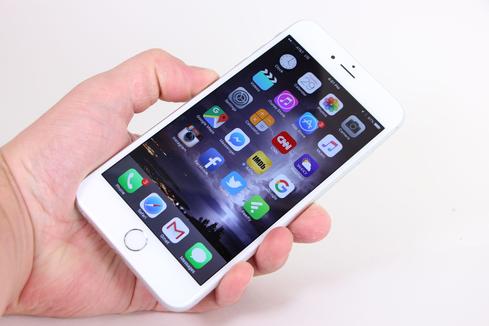Intel is vying against Qualcomm to develop LTE modem for Apple's iPhone 7.


iPhone 6s Plus Hands-On: 10 Best Features
iPhone 6s Plus Hands-On: 10 Best Features (Click image for larger view and slideshow.)
Apple already relies on Intel to provide the processors for its Mac computers, and may ask the chipmaker to supply a key component for the next-generation iPhone, the so-called iPhone 7. Intel has as many as one thousand engineers working to integrate its 7360 LTE modem with Apple's application processor.
The deal would be a major win for Intel.
Intel is going all out to court Apple, according to sources cited by VentureBeat. Intel's 7360 LTE modem could be the shining star in a future, Apple-designed system-on-a-chip. The 7360 was designed in Germany, and Apple's engineers have been making trips to Munich to work with Intel's staffers on the ground there. The 7360 is set to start shipping by the end of the year and is expected to appear in smartphones and other connected gear in 2016.
Right now, Apple uses the Qualcomm 9X45 LTE modem for the iPhone. Qualcomm won Apple's business after Intel purchased Germany-based Infineon in 2011. Infineon used to supply Apple's 3G modems. Intel has been anxious to win that business back, for good reason.
Apple sold more than 13 million iPhone 6s and 6s Plus handsets during the first weekend of availability in September. The company pushed 72 million iPhones during the holiday quarter of 2014. Those types of volumes could give Intel a huge boost in the mobile market, where it has lagged badly compared with competitor Qualcomm.
Intel may do more than supply the modem; it may also fabricate the SoC for Apple, says VentureBeat.
Apple's Ax-branded processors stand apart from the modem. Integrating them into a single unit could bring significant power efficiency and speed gains. Apple excels at integration, something evidenced by the M9 motion co-processor, which was built into the A9 processor in the iPhone 6s and 6s Plus. VentureBeat believes Apple will license the 7360 design from Intel to design this SoC, and then ask Intel to manufacture it.
[Read how Apple is fixing its MacBook displays.]
Intel's foundry uses a 14-nanometer process, and the company is working on a 10-nm process alongside it. The A9 processor, made by Samsung and TSMC, is fabricated in 14-nm and 16-nm processes, respectively, but the chip interfaces are fabbed with a 20-nm processor. Intel can create chips that are 14-nm through and through.
Another critical element here is CDMA. Intel recently purchased the CDMA assets of Via Telecom. This will allow Intel to add CDMA technology to the 7360, which is vital for the US and China markets. Both Sprint and Verizon still rely on CDMA wireless technology, as does China Telecom.
Apple and Intel already have a good relationship. Intel is increasing its efforts to win over Apple's iPhone team. Apple has not yet signed a deal with Intel, but might if Intel continues to meet its engineering mileposts.
About the Author(s)
You May Also Like







